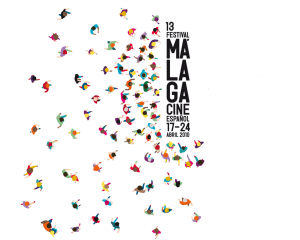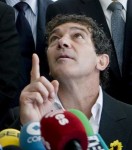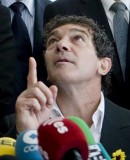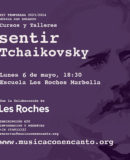Malaga film festival opens with 11 films competing
The 13th Malaga Film Festival began Saturday, April 17, running through April 24, with 11 films in official competition, including directors Vicente Molina Foix and Laura Mañá, plus four newcomers. ‘Io, Don Giovanni’ by Carlos Saura, and ‘Room in Rome’ by Julio Medem were chosen, respectively, to open and close the festival, and are not in the competition.
 New directors are bringing films such as ‘Bon Appetit’ by David Pinillos, ‘The Impossible Language’ by Rodrigo Rodero, ‘Tomorrow Plan’ by Juana Macias, and ‘And Strangers’ by Manuel Gonzalez, according to the coordinator, Fernando Mendez-Leite.
New directors are bringing films such as ‘Bon Appetit’ by David Pinillos, ‘The Impossible Language’ by Rodrigo Rodero, ‘Tomorrow Plan’ by Juana Macias, and ‘And Strangers’ by Manuel Gonzalez, according to the coordinator, Fernando Mendez-Leite.
Among the second run of films are ‘Circuit’ by Xavier Ribera, who participated in Malaga with his first film, ‘A+’, and ‘The God of Wood’ by the writer and critic Vicente Molina Foix. ‘Let The Ugly Die’ by Nacho García Velilla, a comedy produced by Antena 3 Films.
The remainder of films showcased in this festival include ‘Heroes’ by Pau Freixas; ‘Life Begins Today’ by Laura Mana; ‘Rage ‘ by Sebastian Cordero; and ‘One Hour More on Canary’ by David Serrano.
The Malaga Festival also offers ZONAZINE, with six feature films. This exhibit debuted in 2009 with three films – ‘The Disciple’ by Emilio Ruiz Barrachina; ‘Vamp Ira’s Revenge’ by Alvaro Saenz de Heredia, and ‘Light Trap’ by Alfonso Arau.
The Latin American Exhibit will have eight titles, compared to 16 last year, making for a selection that is much stricter with increasingly exceptional quality’.
In the short films exhibit, 30 works are competing. Festival organizers are also stressing the importance of the documentaries exhibit, with 18 titles in competition.
CONGRESS ON CRITICISM
Much more is happening at the festival than films, however, with several conferences scheduled. There is also a retrospective on contemporary Catalan documentaries, as well as a conference on the state of film criticism in Spain, with the support of the University of Málaga (UMA) and the journal Cahiers du Cinema.
Other offerings apart from films include teaching sessions in the auditorium of the Malaga Picasso Museum (MPM) with Ignacio Cajigas and Elena García Bou, Javier Artiñano, Gonzalo López-Gallego, David Marti and Montse Ribé. New this year, the public will be able to meet and speak with two or three personalities of Spanish cinema, also in the MPM. Sources in the festival would not reveal the names of these presenters, however.
Rounding out the conference program, there will be smaller presentations including one on ‘Affirming the Rights of Women’. There will be concerts and exhibitions such as ‘From the Shadows in Film’, consisting of 100 pieces from the collection of Josep M. Queralto; ‘Costume of Dreams’, dedicated to Javier Artiñano; ‘One Hundred Years of Empire’, a tribute to the actress Imperio Argentina; ‘From Silent to Sound’, with posters of films from the silent era, provided by actor and art collector Lucio Romero; ‘La Calle Cinema: Bollywood Reinterprets the Spanish Cinema’, with posters made by Indian artists; and an exhibition of photographs called ‘Caprichos de Goya. “
TRIBUTES
Several tributes are planned, with awards given to various leaders in Spanish cinema. Actress Rosa Maria Sarda will receive the Premio Málaga. Javier Artiñano will receive the Franco Ricardo Prize for costume design. The Prix de la Iglesia will go to director Gonzalo Lopez-Gallego. The Festival Retrospective is dedicated to Julio Medem. In addition, the public will have opportunities to remember Jose Luis Lopez Vazquez, Paul Naschy and director Ivan Zulueta, who died in late 2009.
This year’s Gold Film presentation – which annually revives long-forgotten but influential classics – will feature ‘Malvaloca’ by Perojo Benito, a silent film made in 1926. This screening was originally to have included live music by the Philharmonic Orchestra of Málaga. Organizers say, however, that because of technical difficulties, the soundtrack will be pre-recorded. A short documentary on cinema history will precede ‘Malvaloca’. This film will be ‘Viewers on the Train: The Origins of Malaga in the Movies’, by Domi Griñán Francisco del Postigo, produced by Video Sur for the Provincial Arts Council.
The festival has a budget of 3.2 million euros, including all activities taking place throughout the year. Organizers point out that this is a significant reduction compared with nearly 4 million in 2009. The reduction is due to the austerity required in the current economic crisis. To accomplish this reduction, however, organizers had to remove one day from the schedule and delete the closing party.
The festival runs through April 24. Tickets are on sale daily from 08:30 to 14:00 and 18:00 to 21:00. Ticket offices are located on Calle Ramos Marin, in front of Teatro Cervantes.
The festival has reserved 12 locations for screenings, exhibits, and conferences, with the centre being Teatro Cervantes on Calle Ramos Marin and Teatro Echegaray on Calle Echegaray.
For more information, phone +34 952 228 242.
Disclaimer: The views, opinions and positions expressed within this guest article are those of the author John Grimmett alone and do not represent those of the Marbella Marbella website. The accuracy, completeness and validity of any statements made within this article are not guaranteed. We accept no liability for any errors, omissions or representations. The copyright of this content belongs to John Grimmett and any liability with regards to infringement of intellectual property rights remains with the author.










